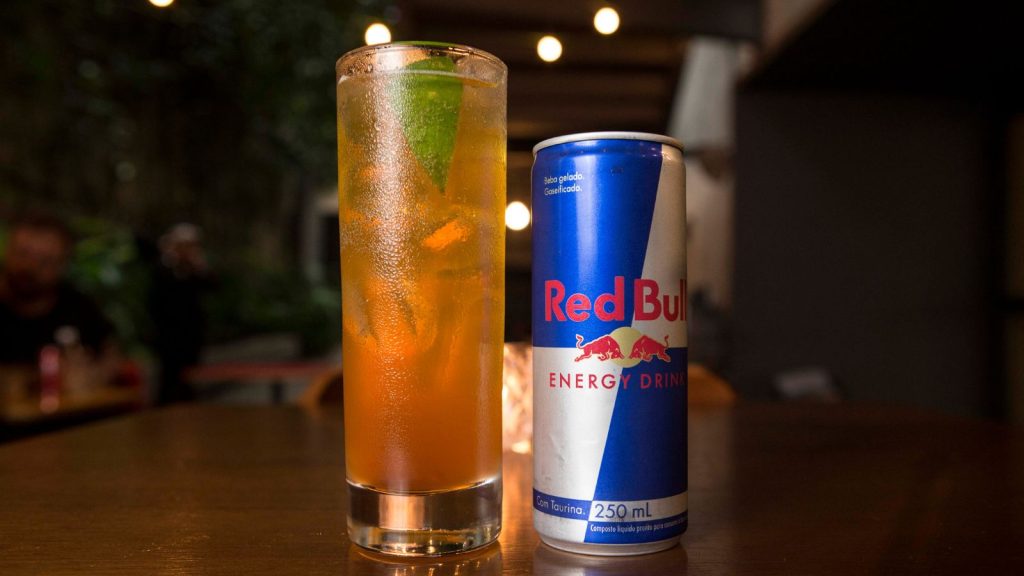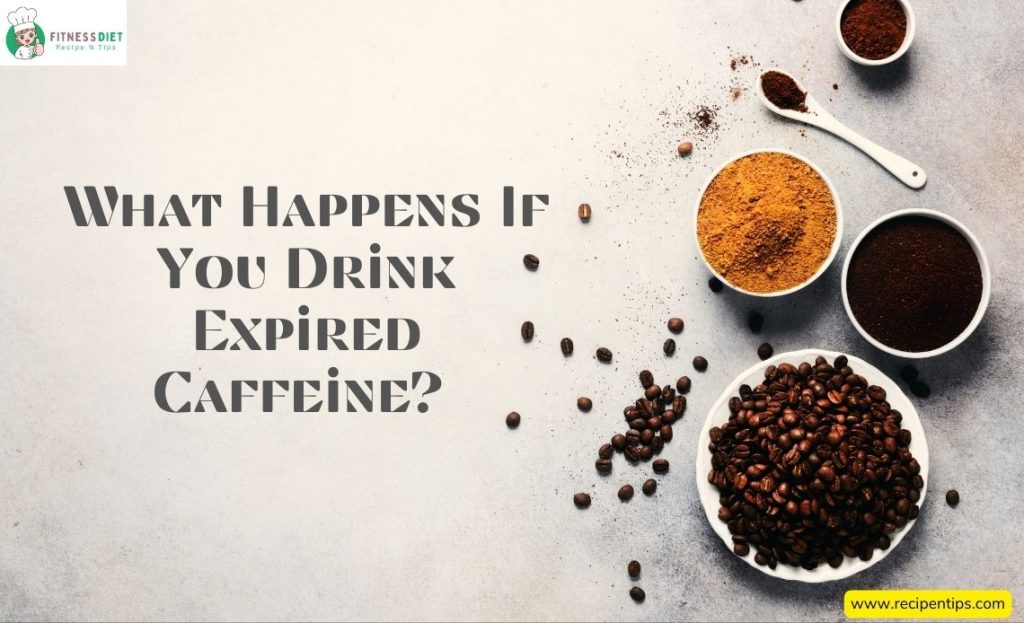Our days are filled with many tasks and responsibilities, and often it feels like we need all the energy we can get. Caffeine is a popular way to boost alertness, focus, and concentration, but what happens if you drink expired caffeine?
This article will explore the potential risks and effects of consuming outdated caffeine products. We’ll discuss how long caffeine is good for and what you should know about drinking expired caffeine.
What is Caffeine?

Caffeine is a natural stimulant found in many forms of produce, from coffee beans and tea leaves to cocoa pods and kola nuts. It’s an odorless, bitter-tasting compound that can be found in more than 60 plant species around the world.
Caffeine has been used for centuries as a way to stay alert and energized, with evidence indicating that it was first consumed over 1,000 years ago by Ethiopian peasants who chewed on coffee beans to help them stay focused during long work days.
Effects of Expired Caffeine
Expired caffeine can have a variety of effects on the body, depending on how it is stored and how long it has expired. If caffeine is stored improperly, such as in direct sunlight or at room temperature for an extended period of time, its potency can be reduced significantly.
This may cause one to experience fewer stimulant effects from their caffeinated beverage than they would when consuming a fresh product. Additionally, the taste of any caffeinated drink that has expired will not be as pleasant as when freshly made.
When caffeine is stored properly, usually in an airtight container and away from direct light sources, the potency does not decrease as quickly, and the taste still remains relatively unchanged after expiration.
However, even if caffeine is stored in these optimal conditions, it should still not be consumed more than two weeks after its expiration date to ensure maximum safety and efficacy.
Is it Unsafe?
Caffeine is one of the most widely used substances on the planet, and it can be found in many different forms. While some people may enjoy a cup of coffee or an energy drink, there are potential health risks associated with consuming expired caffeine.
With its acidic properties and highly concentrated nature, it’s important to understand if expired caffeine is safe to consume.
Research has shown that when caffeine ages over time, its chemical composition changes. This affects the potency and acidity of the substance as well as how quickly it breaks down in your body.
When consumed past its expiration date, expired caffeine could cause stomach irritation due to its increased acidic properties. Additionally, it may not offer you any more of a boost than regular water since much of the active ingredient has broken down by then.
Recommended Consumption Practices

We’ve all been there: you reach for a cup of coffee from the back of your pantry and realize it expired months ago. Even though consuming expired caffeine may not be harmful, it definitely won’t taste as good.
To ensure that you’re getting the best quality coffee experience, it’s important to know when to buy and drink caffeine products.
When shopping for coffee or energy drinks, always check the expiration date before purchasing. Caffeine products will start to lose their freshness after they hit their expiration date and can become stale or have a decrease in flavor over time.
When drinking caffeine, try to consume it within 6-8 weeks of purchase so you can enjoy its optimal flavor profile. After this window has passed, don’t throw away your unused product – consider donating it to a local food bank!
Long-Term Health Risks
Caffeine is a commonly consumed stimulant found in coffee, tea, soda, and energy drinks. But just like any other food product, it has an expiration date – and consuming expired caffeine can lead to long-term health risks.
Though the taste of expired caffeine won’t be immediately apparent to consumers, it can still cause serious medical problems if consumed regularly.
The caffeine that has been past its expiration date may contain compounds called free radicals that damage healthy cells in the body over time.
It can also cause digestive issues such as nausea and vomiting, as well as headaches and high blood pressure when consumed in large doses.
Furthermore, drinking large amounts of expired caffeine may lead to cardiovascular complications by constricting blood vessels or increased heart rate.
What happens if you drink an expired drink?
Drinking an expired drink can have some potentially serious consequences. Knowing the expiry date of a product is critical for ensuring its safety and quality. Typically, most soft drinks are safe to consume up to 18-24 months after their production date.
However, beyond this period, drinking an expired drink can cause illness or discomfort due to the presence of harmful bacteria and other elements.
Consuming an expired drink could result in mild symptoms such as nausea, headaches, diarrhea, or vomiting; however, in more severe cases, it could lead to food poisoning, dehydration, or even death in extreme cases if consumed over long periods of time.
It is, therefore, important to understand the expiry date of any food product before consuming it and avoid drinking any beverages that are beyond their recommended expiry date.
Is it safe to drink expired Red Bull?

The expiration date printed on cans of Red Bull is an indication of product quality, not safety. Generally speaking, unopened cans are safe to consume for up to 9 months after the expiration date.
However, if it’s left open for more than 4-6 hours, then bacteria can form and make it unsafe for consumption. To maximize product freshness, avoid exposing the can to extreme temperatures such as high heat or direct sunlight.
Additionally, keep in mind that while a can may still be safe to drink after its expiration date, it will not provide optimal taste or nutrition benefits since nutrients begin to degrade over time once opened.
Is it safe to drink expired Monster energy?
When it comes to energy drinks, consumers often ask if it is safe to drink expired Monster Energy. While the general consensus is that energy drinks are safe for up to 6-9 months after their expiration date, drinking beyond this time can lead to health risks and adverse effects.
Consumers should keep in mind that the shelf life of energy drinks such as Monster Energy and Red Bull varies due to their ingredients.
Caffeine, vitamin B6, vitamin B12, and taurine are some of the main components found in most energy drinks which can cause them to go bad faster than other beverages.
If past their expiration date, these substances may start breaking down, leading to a loss of flavor or an unpleasant taste when consumed.
Additionally, consuming outdated energy drinks may also result in stomach discomfort or digestive issues due to bacteria growth in the containers.
What happens if you drink expired caffeine?
The question of whether or not one should drink expired caffeine has been debated for years. While there is no definitive answer to this question, it is important to consider the potential risks that come with consuming expired caffeine.
While drinking expired, caffeine will not likely make you sick, consuming it can still be dangerous and adversely affect your health in other ways.
Caffeine’s potency decreases over time; thus, if you choose to consume an expired product, the effects may be much weaker than if it were fresh.
Furthermore, because caffeine has a bitter taste that becomes more pronounced as time passes, any beverage containing expired caffeine may taste unpleasant and put off would-be consumers.
Ultimately, whether or not you decide to drink expired caffeine is up to you; however, those considering doing so should be aware of the potential consequences they might face due to its decreased potency and bitterness.



